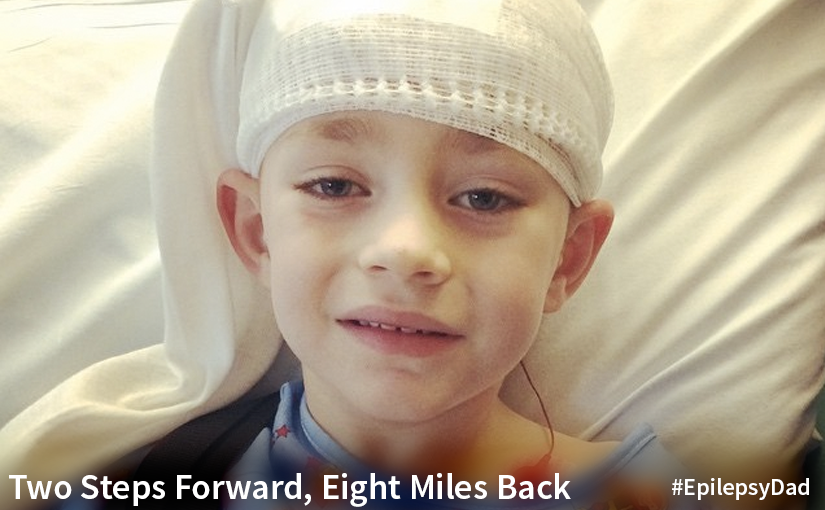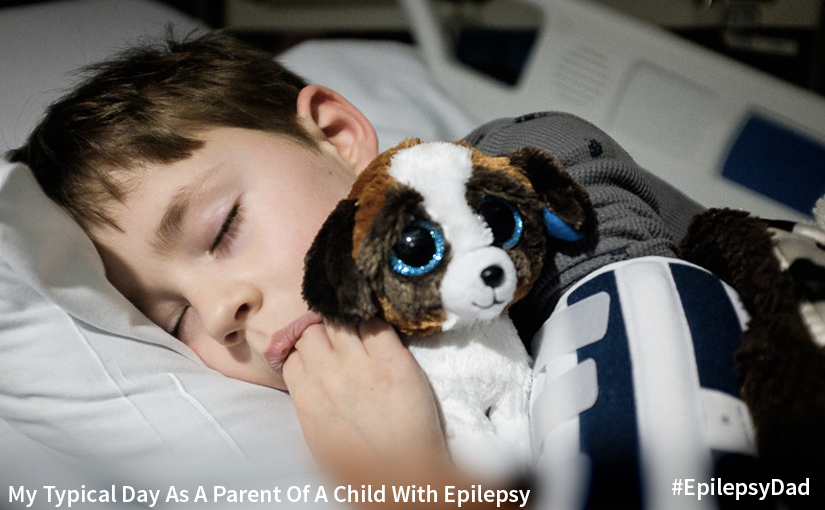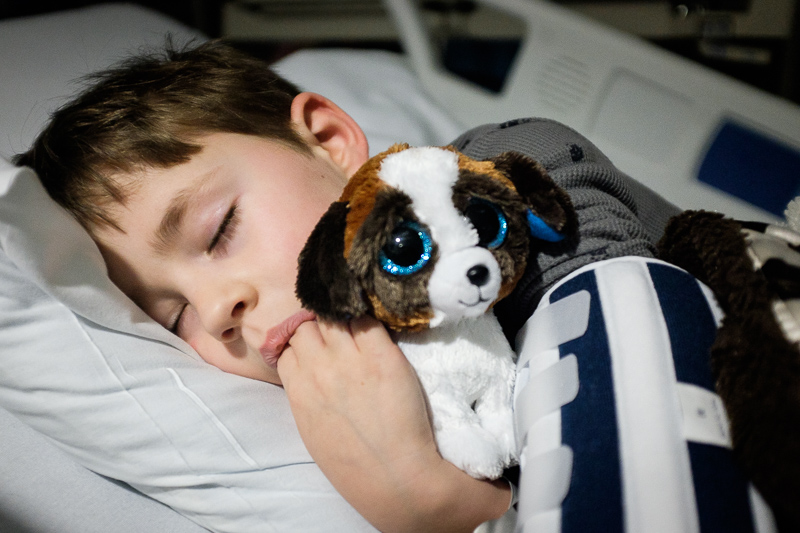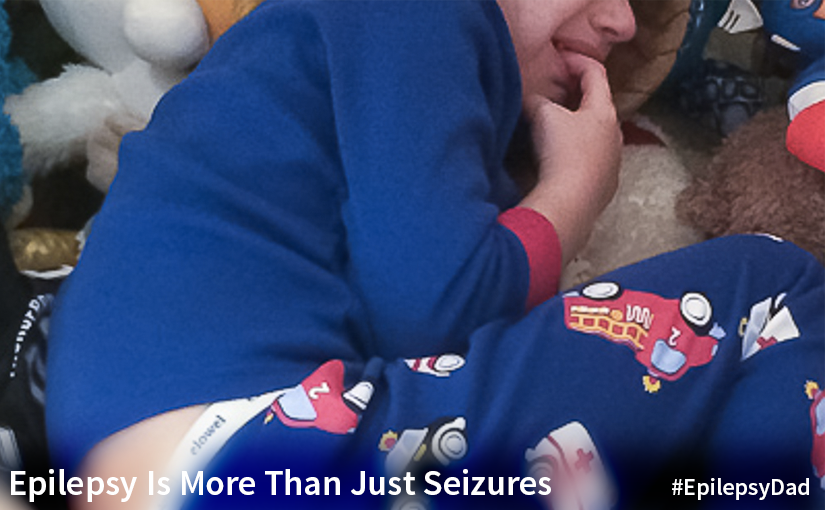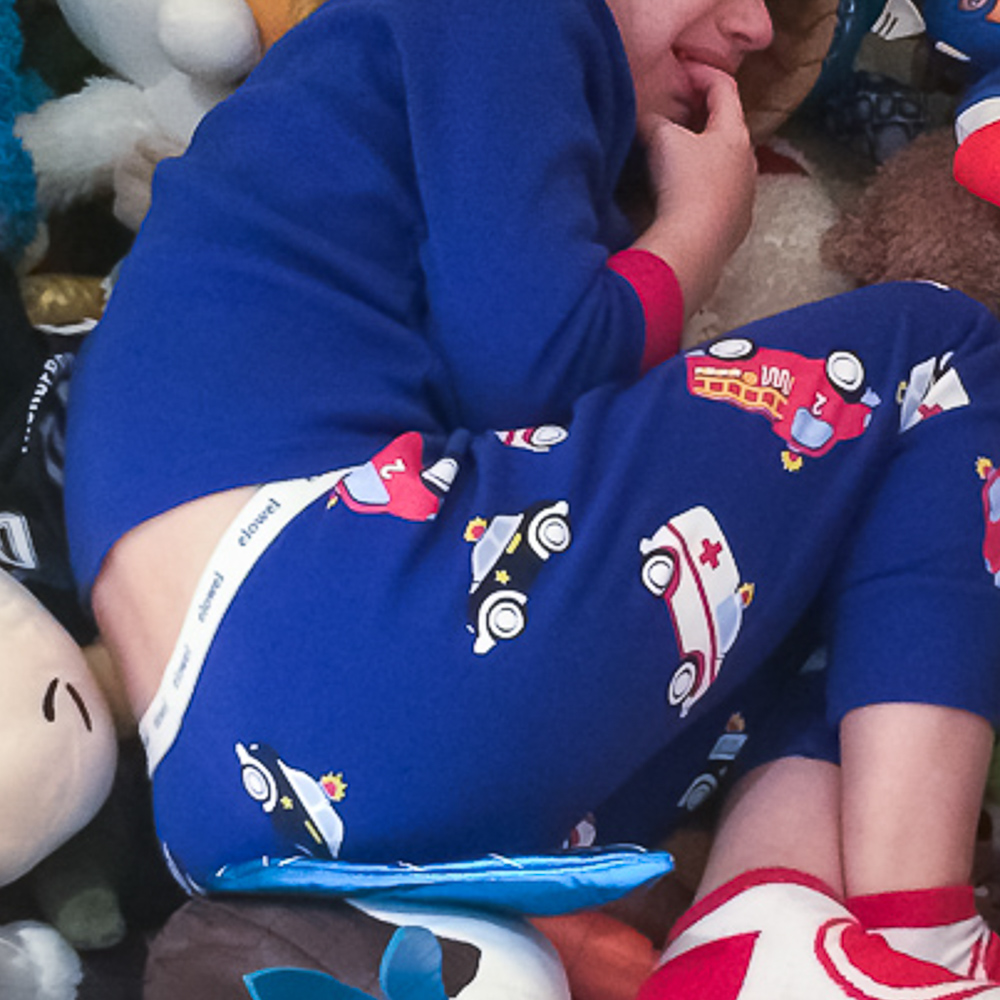We’re back on the neurology floor, a week after starting the ketogenic diet. While we are seeing a decrease in the number of seizures, which we hope are attributable to the keto diet, we’re not seeing any progress in his abnormal behavior.
I can’t say that I blame him. Having seizures isn’t fun. Always being tired isn’t fun. Although not going to school probably sounds like fun, it isn’t when you don’t get to see your friends and have to hang around a stressed mom and dad all day long. And now he has to drink oil and cream with every meal, a far cry from pizza and cheeseburgers. But it’s more than that. It’s not an occasional temper tantrum that comes with being five, it’s deceptive, and manipulative, and angry. He’s trying to hurt us and himself, and sometimes he doesn’t remember doing it. That’s what brought us back to neurology.

After a day of monitoring, the good news is that the outbursts don’t seem to correlate to any seizures. The bad news is that they don’t correlate to anything other than being tired, so we’re left guessing whether it is a side effect of the medication or some remnant left over from when his seizures were really bad that altered his core.
Not knowing is always the hardest part. Not knowing when it involves your five year old makes it all just unbearable. It’s tiring, and frustrating, and scary. While I haven’t given up on the long term goal of him playing in the NHL, the reality is that we’re much more focused on the day-to-day. Whether the diet works for his seizures or not, what will his quality of life look like if his brain can’t keep a lid on his emotions? What will it look like if he’s constantly tired, or if his parents are constantly tired and on edge?
There is so much about this that falls outside of the realm of possibility that I thought possible as a life for my son. I’m really trying to focus on the positive, and to be grateful for the nuggets of goodness that we find along the way even though many days, it feels like we take two steps forward, only to find ourselves eight miles back.
